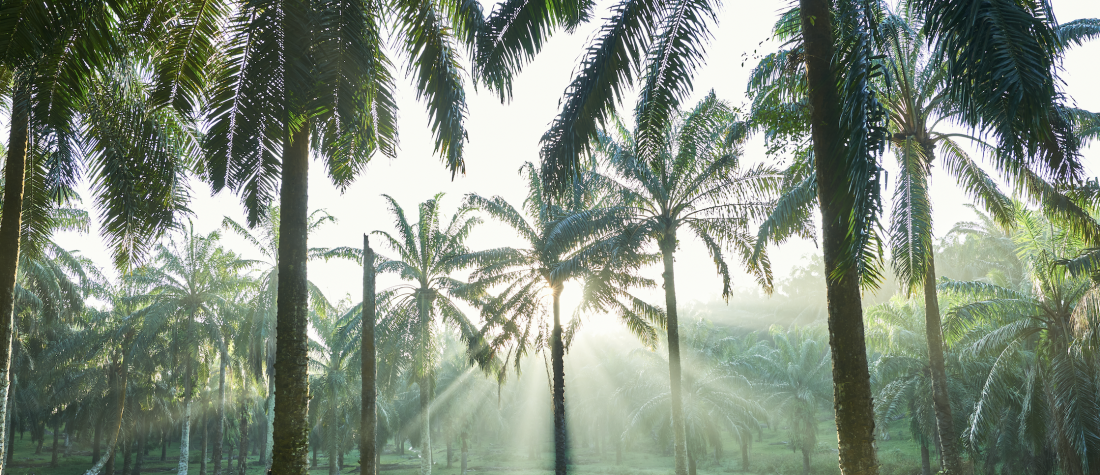Palm oil – which is present in more than 50 per cent of products available in supermarkets – has had a lot of bad press in the past 10 years. According to the World Wildlife Fund, the industry is one of the major drivers of deforestation. However, Malaysia’s palm oil minister, Zuraida Kamaruddin, is on a mission to balance the concerns of the environmentalists with the health of Malaysia’s economy. “It has an overwhelmingly positive impact on our country,” she says, “by decreasing rural poverty, increasing employment, and improving the quality of life of small farmers and their families by bringing infrastructure, education and healthcare to remote areas.”
Driving sustainability
In 2018, the EU launched its revised Renewable Energy Directive, which classifies palm oil as a high contributor to fossil fuel use. The oil will be gradually phased out of the EU renewable energy mix by 2030. France has gone further in its stance, having banned palm oil from being used as a biofuel feedstock as of 1 January 2020. However, Kamaruddin argues that these new legislations do not take into account the progress made by the Malaysian palm oil sector to drive sustainability. “If improvements are deemed necessary, the EU should consider offering assistance – technical or financial – to move matters forward,” she adds.
When talk turns to regulatory threats, the discussion usually veers to actions initiated by Brussels. Indeed, some of the biggest customers of Malaysian palm oil are based in Europe.
“The main challenge is that the European Commission and European Parliament are seeking to regulate Europe’s imports of palm oil. This is associated with the trade protectionism agenda of the EU as a rapeseed oil producer,” says the minister.
“However, the production of rapeseed oil is not as competitive or environmentally friendly as that of palm oil.” She adds: There is no doubt that Malaysia has a superior product in terms of its productivity, versatility and price.”
Diplomatic approach
Kamaruddin says that she would prefer to have a relationship based on trust and fair trade rather than geopolitical tensions. “Malaysia has always adopted a diplomatic approach in addressing trade issues relating to palm oil. We will therefore continue to engage the EU constructively to resolve issues,” she adds.
Furthermore, the consultation process over the upcoming EU Due Diligence proposals will provide an opportunity to ensure that Malaysia’s trade interests are incorporated into regulations. “We will also utilise various avenues to exchange unambiguous information with the EU on the sustainability of our palm oil industry. These include the Assocation of Southeast Asian Nations and EU Joint Working Group on Palm Oil and other collaborative projects,” says Kamaruddin.
Still, the softly, softly approach may not always work out, and Malaysia must be prepared to take firm action whenever required. This happened with its attempt to engage the EU via the World Trade Organiazation over the latter’s stance against the use of palm oil in biofuels. According to Kamaruddin, it did not produce a mutually acceptable solution.
Growing demand
As regulation tightens in the West, China and India are fast taking over as the largest markets for Malaysia’s palm oil industry. In 2020, India and China imported a total of 5.5 million tonnes of palm oil, and from January to August 2021, they imported 3.16 million tonnes, which accounted for 33 per cent of Malaysian palm oil exported over this period. “A vast population of 1.44 billion in China and 1.39 billion in India will support increased imports of vegetable oil. Malaysian palm oil products, which are readily available and competitively priced, are poised to meet the growing demand,” says Kamaruddin
The other hurdle the Malaysian palm oil industry has had to face is accusations of inadequate workers’ rights. In response, the Ministry of Human Resources (MOHR) launched the Working for Workers (WFW) programme in May this year. This is a dedicated platform for more than 15 million workers, who are primarily foreign, to submit complaints related to labour issues. “The WFW platform enables workers to report complaints online,” says Kamaruddin. “The nature of complaints covers contract disputes; late payment of salary; being forced to work during leave; unfair dismissal; failure to report the employment of foreign workers; improper treatment; and employees being prevented from working from home while the Covid-19 Movement Control Order was in place.”
Seven principles
The country also has Malaysian Sustainable Palm Oil (MSPO) certification standard, which is built on seven principles that form the general requirements of a management system framework. This, in turn, promotes the three pillars of sustainability – to be economically viable, socially acceptable and environmentally sound. The principles cover management commitment and responsibility; transparency; compliance with legal requirements; social responsibility; health, safety and employment conditions; environment; natural resources; biodiversity and ecosystem services; best practices; and development of new plantings. Each of the seven principles also has specific criteria and indicators that the certification bodies use during the audit process, to determine compliance and award certification.
Improving the rights of women – in particular, expanding female participation in Malaysian life – has been a huge part of Kamaruddin’s political career, and she intends to continue to open up the palm oil sector to women in her current role. She would also like to see more women leaders appointed to corporate boards and as heads of various agencies. “Let me set an example that others can follow,” she says.


